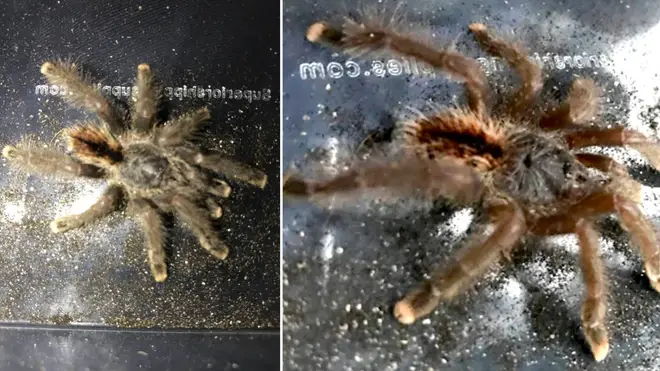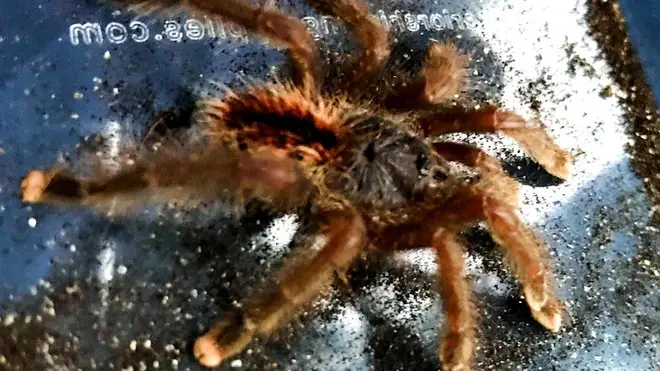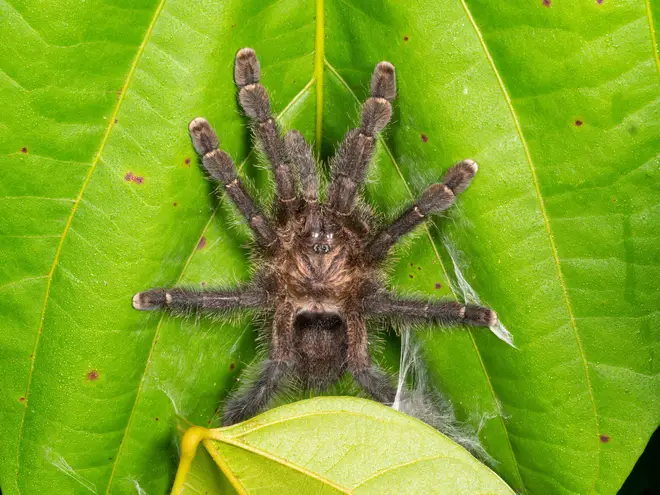On Air Now
Heart's Club Classics with Toby Anstis 7pm - 11pm
14 January 2022, 11:32 | Updated: 14 January 2022, 11:39

A giant spider was found in a box on a commuter train in London last Friday.
Commuters were left shocked last week when they spotted an unusual guest hopping aboard a train in London.
The giant pink-toed tarantula might normally be found in its native habitat of the South American rainforests, but last Friday one arrived at London Bridge station.
Measuring 3.5cm, the creepy crawly was sitting in a clear plastic box after seemingly being left by its owner.
Luckily, passengers were quick to alert the RSPCA and the abandoned pet was taken to South Essex Wildlife Hospital.

Animal rescue officer Mat Hawkins said: “Passengers got more than they bargained for when they spotted this little guy on the train!
“He was shut inside a plastic tub so we believe he had been abandoned in the carriage.
“Thankfully passengers alerted staff who kept him safe in their office until I could arrive to collect him.”
Mr Hawkins added: “Anyone thinking of getting any kind of pet should do lots of research first, using expert sources, to ensure that the species is right for them and that they can properly meet their needs.”
Anyone with information about the abandoned tarantula has been asked to contact the RSPCA.

Holly Willoughby freaks out after Phil finds a spider in her hair on This Morning
A pink-toed tarantula is known as an Avicularia avicularia and is native to areas such as Costa Rica, Brazil and the southern Caribbean.
It is not venomous, but does have large fangs and can give a sharp bite which has been compared to a wasp sting.
They have peach-coloured tips on their legs, which are used to help them camouflage in the wild.
They are also thought of as docile creatures and like warm, humid environments.

According to the RSPCA, people should think very carefully before deciding to keep tarantulas as pets as they require lots of specialist care.
Their website states: “All pets, including exotic animals, require proper care and attention. But exotics can be more expensive to feed and look after properly and they often require specialist living conditions.
“Some owners keep exotic animals in unsuitable conditions, which cause a variety of illnesses and injuries. It can also be difficult and costly to find a vet who is experienced in treating these animals.”